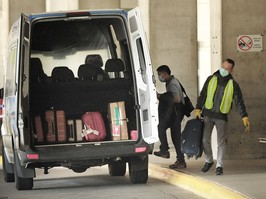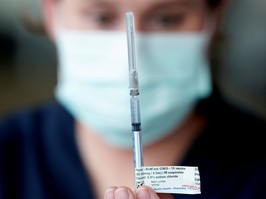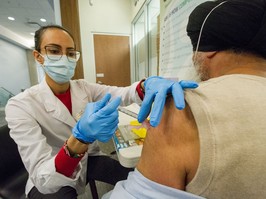by randy shorenicola desousa has been fighting for her son’s recovery from drug addiction for nearly a decade, but the health-care system has thwarted her at every turn.earlier this week, the provincial government announced it will enact “emergency measures” that will allow addicts 18 and under to be hospitalized against their will for two to seven days if they suffer an overdose.the only problem is that desousa’s son, christian, is now 25.“things went noticeably off the rails when he was 15 or 16, but it started earlier, he was just really good at hiding it,” she said.desousa tried to get her teenaged son treatment, but they kept getting turned away.“they didn’t think he had any issues,” she said. “my son is a very good liar and he was able to lie to people who are trained to see through lies.”involuntary hospitalization is a tool she “absolutely” would have used to help her son as a teen and would use it today, if she could.unfortunately, parents of addicted adult children have no power to compel any kind of treatment.after living for a time on the downtown eastside, christian entered a nine-month treatment program two years ago, after desousa convinced the court to release him to her supervision.he has since relapsed.desousa is frustrated that the tools and programs available to help teens end so abruptly on their 19th birthday.“there needs to be some sort of guardianship for young adults, if you could prove there is a need for it,” she said. “there are people living in the street addicted to drugs who have people who love them. but after so much head-banging, (the families) just give up.”changes to the mental health act will apply to youth because research suggests that “this type of care does not work for adults and may actually be harmful,” said the ministry of mental health and addictions.the goal is to “allow (teens) to stabilize and regain their decision-making capacity, and to help connect them to voluntary, culturally safe supports and services in the community.”
so far this year, six people under the age of 19 have died of overdose, about one per cent of all such deaths, according to the b.c. coroners service.however, 116 people aged 19 to 29 have died in that same period, about 20 per cent of all illicit drug toxicity deaths, the coroner said.british columbia recorded 170 illicit drug deaths in may, the highest single-month total ever. about 6,000 people have died of overdose in b.c. since 2015, many of them due to contamination of street drugs with the super-potent opioid fentanyl.some of b.c.’s top public officials expressed skepticism that involuntary treatment will be effective without investments in drug treatment programs.
b.c.’s representative for children and youth was disappointed that the government has introduced “involuntary stabilization” in the absence of other supports needed to treat addiction.jennifer charlesworth called for implementation of services such as youth-friendly voluntary detox, intensive case management, and community residential treatment.she worries that young people may hesitate to call for medical help if it might result in involuntary confinement.b.c.’s chief coroner lisa lapointe said that involuntary treatment could have unintended consequences.“without an established, evidence-based, accessible system of substance-use treatment services, i am concerned there is the potential for serious unintended consequences as a result of these legislative amendments, including the potential for an increase in fatalities,” lapointe said.premier john horgan would not promise any new investment in treatment beds.“many families of young people who have left us because of a death from an overdose have asked and appealed to government — both parties, the opposition and the government — to come up with some suggestions about how we can do more and better for young people,” horgan said on wednesday. “that is the intent of the legislation.”horgan also sidestepped the question of decriminalizing hard drugs, something provincial health officer dr. bonnie henry has repeatedly suggested to stem the flood of overdoses that have ravaged b.c. for five years.“the minister is considering the recommendations that (henry) has brought forward. we have substitute therapies in place in many parts of british columbia,” said horgan. “we are going to continue to act on those recommendations, as we are able to.”
rshore@postmedia.comdon’t miss the latest on covid-19, reopening and life. subscribe to healthing’s daily newsletter coming out of covid.
 3 minute read
3 minute read












